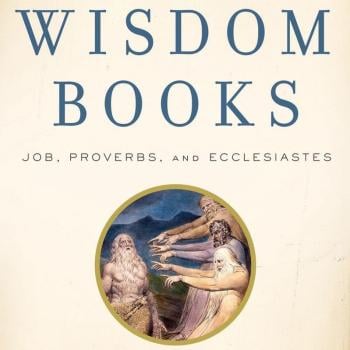Sometimes I grow weary of pointing out that a precise knowledge of Greek is necessary for a correct translation of the New Testament. Today, I am taking the example of the Greek word δεσμός. This word literally means chain, bond, a string or ligament, or some other kind of impediment that hinders a person. What the word does not mean, in the first instance, is prison, or jail. Hence the translation ‘prisoner’ is not necessary, or really very accurate. There is however a related word, δέσμιος which means ‘one who is bound’, and sometimes by extension that one mean a ‘prisoner’, but even that does not necessarily mean one is in prison. It can mean one is under house arrest, chained to someone. This brings me to Acts 28.16, where we hear that Paul was chained to a person, but was under house arrest. This, I submit, is the condition of Paul when he wrote Philemon, Philippians, Colossians, and Ephesians (assuming Paul is responsible for these four documents). They should be called the captivity epistles, not the prison epistles, unlike say 2 Timothy where Paul is clearly incarcerated. Notice how many translations render Col. 4.18 quite rightly as remember my chains but insist on translating desmos elsewhere as referring to imprisonment. A little more consistency would be helpful translators!
Further note. Ephes. 4.1 is the place where we find the word δέσμιος, but notice Paul says he is a ‘prisoner of Christ’, or better in bonds because of Christ. He does not say he is a prisoner of Rome or Ephesus or anywhere else.
In my recent article, last Fall in JETS, I made clear that there is no case to be made for Paul being a prisoner in Ephesus. Here I am pointing out what I did not say there, namely that lexically there is no reason either to interpret the Greeks words mentioned above to mean anything other than that Paul was in chains, as Acts 28 says explicitly.
One other term is of interest, a very different term. Students of Paul’s Greek have long noted his penchant for creating or using compound nouns beginning with the prefix ‘sun’ (with, or co-), so sunergos means co-worker etc. At Col. 4.10 Philemon vs. 23 something interesting is said about Aristarchus and Epaphras. They are called ὁ συναιχμάλωτός μου, and it is translated ‘my fellow prisoners’ Now an αιχμά in Greek is a spear, and άλωτός comes from the word which means captured. Literally then the phrase means ‘my fellow captured person’. The word for prison is simply not part of that word.
δεσμωτήριον however is indeed the word for prison, but one has to know the Roman context to decide whether the cognate terms refer merely to being in chains, or being in prison. In the case of a Roman citizen like Paul, being in chains is far more likely. As in Caesarea, so in Rome Paul was under house arrest, in chains. And of Paul being either in chains or in prison in Ephesus—- the NT says exactly nothing. Last point. Clement in 1 Clem. 5.6-7 says Paul had been seven times in chains. Nothing about his being in prison in Ephesus or elsewhere. An overnight stay in a Philippian jail hardly counts as being imprisoned.















